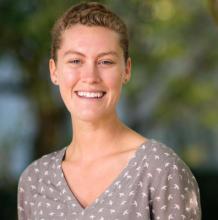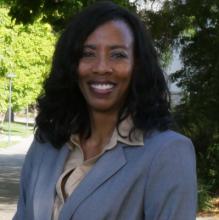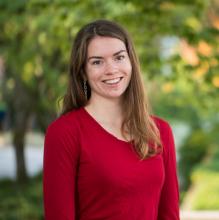With unsafe abortions being a major cause of mortality in the PanAmerican region, Paula brings years of experience working with and within International Organizations and policy makers to collaborate with patients, health care workers, and other stakeholders to redesign abortion policies in the region for better public health outcomes.
Research Description
I seek to investigate, what strategies may reduce knowledge gaps between women experiencing abortion (and post-abortion), health care personnel, and public policy in Latin America and the Caribbean (LAC), recognizing that maternal mortality is a key indicator of the capacity of health systems and an indicator of social and economic inequalities in every country. According to the PanAmerican Health Organization (PAHO), unsafe abortion is the 4th leading cause of maternal mortality in the region.
What does being a Public Scholar mean to you?
For me, being a Public Scholar is being part of a great network of scholars taking the chance to re-think the PhD experience, a network of people who are convinced that academy and research can positively impact our world's biggest challenges.
In what ways do you think the PhD experience can be re-imagined with the Public Scholars Initiative?
As part of the Public Scholars Initiative, you are challenged to think out of the box, to listen to other's ideas, to go beyond what is usual in your field. PhD experience is being re imagined every day when we start asking new questions and looking for unconventional answers. I believe this is what we came to do when we are part of the Public Scholars Initiative.
How do you envision connecting your PhD work with broader career possibilities?
I am sure my PhD will give me the tools, knowledge, and experiences I need to make my understanding of family planning, women's health, and knowledge translation broader and more accurate. I am focused on being part of the international cooperation currently working with Latin America and the Caribbean to make a difference in people's real lives and contribute to developing strategies and policies that understand women, families, and communities needs.
How does your research engage with the larger community and social partners?
As Latin America and the Caribbean (LAC) is a diverse and complex region, I will use the knowledge, experience, and workspaces of the MUSA Network (Red de Mujeres en Situación de Aborto) of the PanAmerican Health Organization throughout my research. I am a longtime collaborator with the MUSA Network and through my research will continue to work hand in hand with them to identify the key and common Knowledge Translation (KT) gaps, and the complexity of regional contexts of abortion care, and to create and test KT strategies that can address those gaps. This work with the network can ideally turn into an example for other regional challenges and decision-making processes, as KT frameworks are not commonly or adequately used in LAC.
Why did you decide to pursue a graduate degree?
There is a lot I still need to know. From theory to methodologies, references, and strategies. All of that I can have during my research period on my PhD. I think this gets me one step closer to my professional and personal goals and allows me to improve women's health and ultimately contribute to a more equal and dignifying region that recognizes that abortion and family planning are both essential health care services.
Why did you choose to come to British Columbia and study at UBC?
UBC is not only one of the best Universities in the world, it is the house of an amazing group of researchers that are taking the time to re-think reproductive health. The work that they have been doing is a key example for my region, it not only gives us hope, it also gives us tools to accomplish our objectives. To maximize the impact of the research I'm proposing, I take part in the Contraception and Abortion Research Team (CART), an interdisciplinary team at the UBC, and a fantastic group of people working to understand and improve health outcomes.




